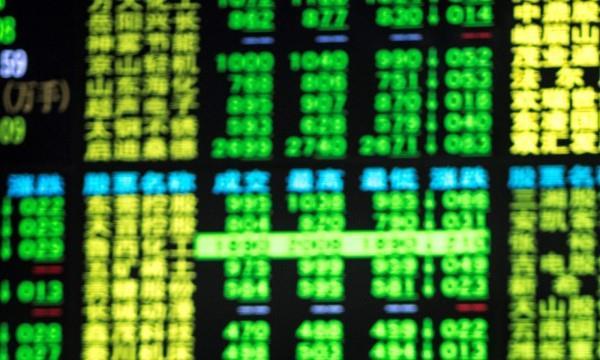Asia Times
GARY KLEIMAN

Chinese “A” shares were down 25% through November, double the MSCI core index loss, with cool economic and financial sector indicators offsetting the glow from suspension of further US tariffs pending another negotiating round. Foreign investors, amid a downturn in domestic consumer and industrial data and bank lending, have shifted portfolios into bonds still at above industrial world yields, as ownership rose to 8% of the total in October. As with MSCI’s earlier inclusion of “A” shares, reallocation came with gradual addition to benchmark fixed-income gauges, expected to reach JP Morgan’s GBI-EM next year. However, US buyers are positioning more cautiously in that asset class with the prospect of a larger Washington campaign against Beijing beyond trade and technology, embracing development and commercial finance to challenge the Belt and Road Initiative and world initial public offering inroads.
The November US-China Economic and Security Review Commission annual report to Congress accused the BRI of “predatory practice,” following a September survey by a US Chamber of Commerce arm of Beijing’s “corrosive capital” undermining governance and reform throughout low- and middle-income countries. Along with the tariff talk outcome and economic rebalancing and debt deleveraging progress, Chinese securities performance could be directly affected by new reputation risks, as first erupted with New York Stock Exchange listings decades ago in the wake of the Tiananmen Square events. Portfolio managers could come under political and fiduciary pressures to shun exposure, at the same time that growth heads toward 6% and financial system cleanup envision local government borrowing and wealth management product control.
Chinese retail sales and industrial output were up just 8.5% and 6%, respectively, in October, with infrastructure spending ahead less than 4% on an annual basis. Car purchases were off 5% for the year as a backstop for looming US market curbs, and officials removed “massive stimulus” as in the post-2008 crisis for possible rescue. Exports continued to jump double-digits overall, and the currency depreciated 6% against the dollar despite central bank intervention increasingly directed toward offshore trading hubs. The Organization for Economic Cooperation and Development predicted growth will settle at 6% in 2020, as the media has reportedly been instructed not to talk down the economy or use the phrase “trade war.” Total social financing fell to an almost 2-year low of RMB 725 billion in October, with state banks encouraged to lend to private and smaller companies. They have set up more strictly monitored wealth management subsidiaries, as the local government debt swap program phases out. Property developer lines are also under scrutiny, after ratings agency Standard & Poor’s warned of numerous liquidity and refinancing risks, especially in the “B”-grade tier.
The US-China Commission issued a scathing criticism of Beijing’s “subversion of international order” and pointed out that 15 years after joining the World Trade Organization it has backtracked on openness with “distorting policies” including import restrictions, stolen technology and product dumping. The bilateral trade deficit this year will top 2017’s record $375 billion, and the same uneven approach applies to the signature Belt and Road program under a no-strings guise, where Chinese labor and companies dominate infrastructure projects and host countries cede sovereignty and transparency, it argues. The economy is saddled with high debt, income inequality and environmental pollution, but the original hope of free trade and investment embrace is “futile” and business and government must instead mobilize to counter “disruptive actions,” in the bipartisan Commission’s view.
The Center for International Private Enterprise, associated with the US Chamber of Commerce to aid industry associations abroad, previously sounded the alarm on Chinese and Russian funding that “exploits weak and corrupt structures.” This “corrosive capital” harms democracy and evades sound debt, labor and climate rules, and the group cites examples in Africa and Latin where Chinese banks and construction firms gouged and misled host countries without the needed institutional checks and balances, such as an organized business sector voice. The OECD’s recent annual Asia equity market review added to competitive finance fears, with the observation that China was the largest IPO source globally in 2017 as 470 transactions dwarfed the US total. Listings are overwhelmingly state-dominated and since the Shanghai and Shenzhen stock exchanges do not offer Western corporate governance treatment or reciprocal access with future securities retaliation possible, it suggests.
Chinese retail sales and industrial output were up just 8.5% and 6%, respectively, in October, with infrastructure spending ahead less than 4% on an annual basis. Car purchases were off 5% for the year as a backstop for looming US market curbs, and officials removed “massive stimulus” as in the post-2008 crisis for possible rescue. Exports continued to jump double-digits overall, and the currency depreciated 6% against the dollar despite central bank intervention increasingly directed toward offshore trading hubs.



